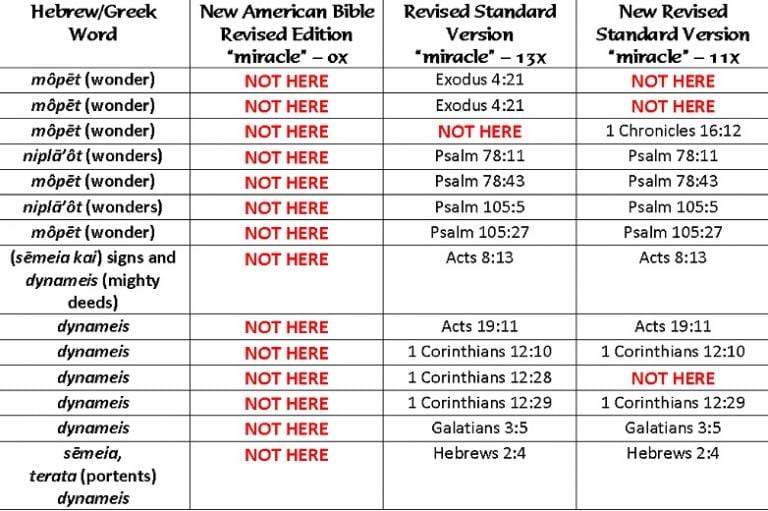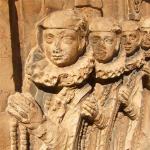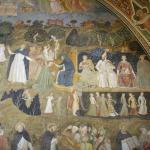
When 21st-century Western Christians take anything in the Bible at face value, it’ll take a miracle to not distort or misunderstand it.
How many miracles are there in the Bible? Many? Few? Is there a definite number? Yes. There is an actual number, and you can know it, for sure.
Are you familiar with a mirage? Something that only appears real or possible, but in fact, isn’t it? Technically a mirage is an optical illusion. When the atmospheric conditions are just right, they work on our eyes and brains as the organs of sight and produce mirages. The mirage can be torturous to a thirsty person melting in a desert! You think you see an oasis, but it’s just a mirage.
My friends, when Americans read the Bible, the cultural conditions are right for producing mirage after mirage. We are guilty of a spurious familiarity. We think we know what we are reading. Still, in reality, we are often clueless about what is going on, what exactly is being communicated, and who the author really was.
Watch the video here—
Eye-Testing for Mirage
Let’s test your eyes for mirages and spurious familiarity. Go through your Bible, looking for the word “miracle.” If it’s a good translation in this regard (e.g., the New American Bible, Revised Edition), be to our spurious familiarity, that word is unbiblical. Truly.
Of course, the Bible does tell of “signs” [in Hebrew ’ot and môpēt; in Greek sēmeia], seven in the Gospel we call “John.” And it is filled with various “wonders” [Hebrew môpēt; pele’], or ‘portents’ [from the Greek terata]. The New Testament speaks of Jesus’ “mighty deeds” [in Greek, dynameis] and “works” [Greek erga]. But never “miracles.” Wonders? Yes. Marvels? Certainly. Miracles? Nope.
Deserts of Understanding, Mirage of Miracles
Our sacred library, the Bible, mainly contains stories of marvels and wonders in three locations. The first is the Exodus narrative. Yahweh mightily delivers Israel out of Egypt and leads them into the Promised Land. The second grouping is found in the Elijah-Elisha cycle, where Yahweh humiliates Baal. Finally, the New Testament proclaims the wonders of Jesus and his earliest followers. These New Testament marvels are bound inexorably to Theocracy. But these are not miracles, despite the mirage of popular imagination and spurious familiarity.
Scholars like Bruce Malina and John Pilch explain that to study “miracles” in the Scriptures is probably illegitimate. Why? “Miracle,” as we use it, is a post-Enlightenment term, and thus, the Hebrew and Greek languages, ancient, offer no equivalent for it. These tongues also are oblivious to the English post-Enlightenment concept “miracle” (see Yair Zakovitch, “Miracle OT,” 1992 Anchor Bible Commentary, p. 845).
Traitorous Translators Enable the Mirage
But that doesn’t stop translators! When reading the Bible, always remember the old Italian proverb—traduttore, traditore! (translators are traitors) Why? Malina and Pilch explain that it is because translators are inconsistent, and they often misrepresent the original author. In cases where “miracle” is found in English Bible translations, the biblical authors have been absurdly misrepresented.
Malina and Pilch explain that translators enable (think drug abuse) contemporary readers to ethnocentrically impose our Western cultural world onto the Bible. Specifically, we get to abuse the Scriptures through the post-Enlightenment understanding of “miracle.” Consequently, great violence is done to sacred documents that neither use that word nor communicate the meaning.
Look at the graphic, carefully—

Look at the differences above. Note how the NABRE never uses the English “miracle.” But the real show is to contrast the RSV with the NRSV. Look at those disagreements. It makes you think about the arbitrariness of English translations. By the way, don’t go getting triumphalistic about the NABRE, fellow Catholics. While it is superior to these others when it comes to “miracle,” it has some real doozies of bad translations!
The Mirage of Impersonal Causality
The point is there is no Greek or Hebrew from the Scriptures that can honestly translate into our word “miracle,” meaning something contrary to the laws of nature. Science, laws of nature, and violations of nature’s laws were simply not part of the cultural consensus reality of Biblical people. Ultimately, words derive their meanings from social systems. No social system with physical laws governing the universe? Well, consequently, no miracles then!
So the New Testament authors, even the eye-witnesses of Jesus’ marvels, could never have considered them to be “miracles.” This is because our ancestors in the faith did not know anything about “laws of nature.” Instead, they were familiar with the regularity of occurrences. In other words, whenever something extraordinary or “irregular” occurred, they marveled at it and attributed it to a personal cause.
There is no impersonal causality in the biblical world. Whenever something happened, the question was never, “WHAT happened.” Instead, the query was always, “WHO did it?” Consequently, it is impossible to say in Biblical Hebrew, “IT rained.” Instead, the expression is, “GOD SENT the rains,” or some equivalent with a personal cause.
In the Bible, WHO, Not WHAT
So in the biblical world, all effects had a personal cause. That means some person was always responsible for all events. Say you can find no human agent responsible. What then? Then, in that case, the person responsible had to be a spirit, like an angel or demon, or perhaps a god, or even the Most High God.
Malina and Pilch explain that in the New Testament, God is the agency behind the Jesus Movement’s wonders. God, the Change Agency, acts as a beneficent patron through his broker, Jesus. Jesus, the Twelve, Paul, and other human change agents performing mighty deeds are like Sonny or Michael or Tom Hagen in “The Godfather Trilogy.” In other words, in doing wonders, they are intermediaries or brokers between God (the patron) and God’s people (the clients).
And suppose you have watched the “Godfather” films. In that case, you know the proper response for a recipient of brokered gifts from your Mediterranean Patron. You become his propaganda machine, singing his praises everywhere, in lifelong loyalty (biblical faith).
Marvels, not Miracles
The Bible is indeed filled with wonders. But it is absent of miracles, that is, violations of the physical laws governing the universe. Openness to the supernatural and God’s omnipotence is good! But it does NOT demand being ethnocentrically anachronistic with Sacred Scripture.
















